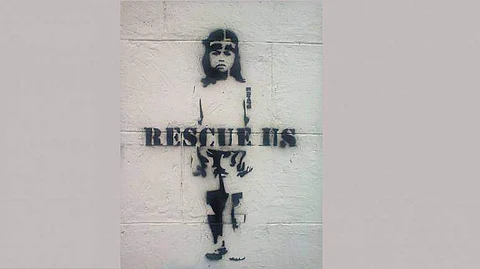

Kerala is looking for United Nations (UN) endorsement for its Anti-Human Trafficking Clubs programme — a joint initiative of Kerala Police and Kerala Legal Service Authority (KELSA) — to prevent and identify human trafficking incidents with the help of college students. Kerala is the first in the world to have such an initiative and recently the government decided to start such clubs in all colleges in the state.
Crime Branch Inspector General S Sreejith, who is the nodal officer of State Anti-Human Trafficking Cell, said it was a first-of-its-kind project launched in 2016. He recently made a presentation about the programme in a meeting conducted by the United Nations Office on Drugs and Crime (UNODC) in New Delhi. UNODC is impressed with the initiative and they are ready to support us. It would be a great achievement if the UN endorses the programme. The project requires minimal financial support. It is a joint initiative of different departments including police and legal fraternity. The programme was launched in 2016 on a pilot basis. Now, the government has decided to implement it in all colleges, he said.
Members of the Anti-Human Trafficking club have to visit workplaces and report cases of human trafficking to the police. Later, the Social Justice Department will rescue and rehabilitate human trafficking victims. Activities of the club are to be supervised by Anti-Human Trafficking Cell of Kerala Police.
There are numerous industries in Kerala which depend on workers from other states. In most companies, workers are provided by contractors. There are provisions in labour laws and the Inter-State Migrant Workmen Act to prevent human trafficking. But identifying these incidents is a daunting task for authorities. There have been instances of employing under-aged children in factories. On a pilot basis, the programme was launched in five colleges. With the help of students, we were able to rescue 168 human trafficking victims. The rescued victims were rehabilitated. By becoming a member, a student has to dedicate four hours a week for anti-human trafficking activities, Sreejith said.
The government has directed the Director of Collegiate Education to take necessary steps for starting the clubs. The government is pleased to order that Anti-Human Trafficking Clubs shall be established in all colleges in the state. As a primary step, the Director of Collegiate Education will take necessary steps to start Anti Human Trafficking Clubs in all Law Colleges and BEd Training Colleges in the state. The principals of these colleges shall nominate nodal officer in the institution concerned for the smooth functioning of these clubs and liaise with state nodal officer, Anti-Human Trafficking Unit, the order read.
